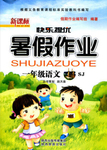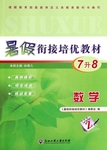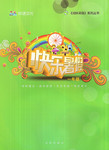There is a famous story about British poet Samuel
Taylor Coleridge. He was writing a poem when he was interrupted by a knock at
the door.
This was an age before telephones. Someone was
delivering a message. When Coleridge got back to his poem, he had lost his
inspiration. His poetic mood had been broken by the knock on his door. His
unfinished poem, which could otherwise have been a masterpiece, would now never
be more than a fragment.
This story tells how unexpected communication can
destroy an important thought, which bring us to the cellphone.
The most common complaint about cellphones is that
people talk on them to the annoyance of people around them. But more damaging
may be the cellphone’s interruption of our thoughts.
We have already entered a golden age of little white
lies about our cellphones, and this is by and large(大体上)a healthy, protective development. “I didn’t hear it
ring” or “I didn’t realize my phone had shut off” are among the lies we tell to
give ourselves space where we’re beyond reach.
The notion of being unreachable is not a new
concept—we have “Do Not Disturb” sign on the doors of hotel rooms. So why must
we feel guilty when it comes to cellphones? Why must we apologize if we decide
to shut off the phone for a while?
Now time alone, or a conversation with someone next to
us which cannot be interrupted by a phone, is something to be cherished. Even
cellphone devotees(信徒), myself usually included, can’t help at
times wanting to throw their phone away, or curse the day they were invented.
But we don’t and won’t, and there really is no need.
All that’s required to take back our private time is a general social
recognition that we have the right to it. In other words, we have to develop a
healthy contempt for the rings of our own phones.
A cellphone call deserves no greater priority than a
random word from the person next to us,though the
call on my cellphone may be the one-in-a-million from Steven Spielberg—who has
finally read my novel and wants to make it his next movie. But most likely it
is not, and I’m better off thinking about the idea I just had for a new story,
or the slice of pizza I’ll eat for lunch.
1.What is the point of the anecdote(轶事)about the poet Coleridge in the first three
paragraphs?
A.To direct
readers’ attention to the main topic.
B.To show how
important inspiration is to a poet.
C.To emphasize
the disadvantage of not having a cellphone.
D.To encourage
readers to read the works of this poet.
2.What does the writer think about people telling
“white lies” about their cellphones?
A.It is a way
of signaling that you don’t like the caller.
B.It is natural
to tell lies about small things
C.It is
basically a good way to protect one’s privacy.
D.We should
feel guilty when we can’t tell the truth.
3.According to the author, what is the most annoying
problem caused by cellphones?
A.People get so
obsessed (着迷) with the cellphone rings that they fail
to notice anything else.
B.People feel
guilty when they are not able to answer their cellphones.
C.Cellphones
interrupt people’s private time.
D.With
cellphones it is no longer possible to be unreachable.
4.What does the last paragraph suggest?
A.A person who
calls us from afar deserves more of our attention.
B.Steven Spielberg
once called the author to talk about the author’s
novel.
C.You should
always finish your lunch before you answer a call on the cellphone.
D.Never let
cellphones disturb your life too much.

 新课标快乐提优暑假作业陕西旅游出版社系列答案
新课标快乐提优暑假作业陕西旅游出版社系列答案 暑假衔接培优教材浙江工商大学出版社系列答案
暑假衔接培优教材浙江工商大学出版社系列答案 欣语文化快乐暑假沈阳出版社系列答案
欣语文化快乐暑假沈阳出版社系列答案